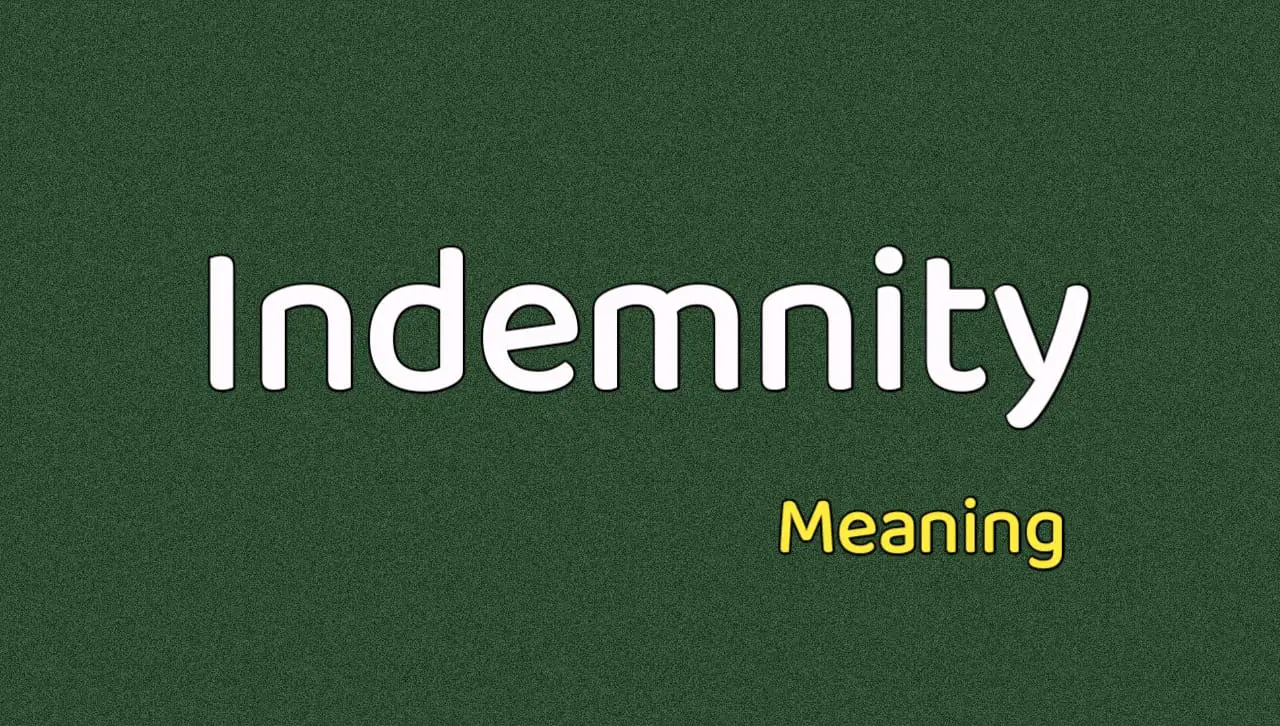In the complex landscape of legal and financial terms, “indemnity” stands as a significant concept often encountered in contracts, insurance policies, and various business agreements. This article aims to demystify the indemnity meaning, providing you with a comprehensive understanding of its implications and applications.

Defining Indemnity
At its core, indemnity refers to a form of protection or security against financial loss or damage. In legal terms, it is a contractual obligation where one party agrees to compensate the other for specified losses, damages, or liabilities. Understanding this fundamental definition sets the stage for a deeper exploration of how indemnity operates in different scenarios.
Types of Indemnity
Contractual Indemnity
In contractual agreements, parties often include indemnity clauses to allocate risks and responsibilities. These clauses outline the extent of indemnification, the types of losses covered, and the conditions under which indemnity is triggered. It’s crucial for all parties involved to carefully review and negotiate these clauses to ensure a fair distribution of risk.
Statutory Indemnity
Some indemnity obligations are imposed by law, providing a legal framework for protection. For instance, in certain business transactions or regulated industries, statutory indemnity may come into play, offering parties a level of assurance and legal recourse.
Indemnity in Insurance
Insurance policies are a common ground for encountering indemnity. Insurers indemnify policyholders against covered losses, mitigating financial risks. However, the terms and conditions of insurance indemnity vary widely, and policyholders must be well-versed in the specifics of their coverage.
The Importance of Indemnity in Business
Indemnity plays a crucial role in business transactions, providing a safety net for unexpected challenges. Whether it’s a merger, acquisition, or the purchase of goods and services, a well-crafted indemnity clause ensures that parties are protected from unforeseen financial consequences.
Also Read : Furlough Meaning
Navigating Indemnity Clauses
Understanding Key Terms
To grasp the full scope of an indemnity clause, it’s essential to be familiar with key terms such as “third-party claims,” “material breach,” and “losses.” A clear understanding of these terms helps in determining the breadth and limitations of the indemnity agreement.
Negotiating Indemnity Terms
During contract negotiations, parties should actively engage in discussions about indemnity terms. This process involves assessing the level of risk each party is willing to accept and finding a balance that ensures fair protection for all involved.
Conclusion
In conclusion, the indemnity meaning goes beyond being a mere legal term; it’s a cornerstone of risk management and protection in various aspects of life and business. Armed with a clear understanding of indemnity, you can navigate contracts, agreements, and insurance policies with confidence, knowing that you have a safeguard against unforeseen challenges.






